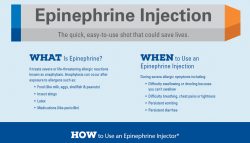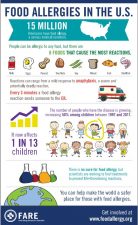- Advertisement -

Popular
What is FAT TOM for Food Safety?
FAT TOM is a mnemonic device used in the food service industry to describe the six favorable conditions required for the growth of foodborne pathogens. Understanding the optimal conditions for bacterial growth can potentially help you reduce your risk for bacterial infections and food poisoning.
Why is food safety training & certification necessary?
Food safety not only affects continued patronage and sales of a food service business, but also public safety. Many businesses require food safety training, so being food safety trained will increase your chances of employment. Furthermore, businesses are willing to pay higher wages to those trained.
Biological Food Hazards
Biological food hazards are biological agents that can pose a threat to human health and include bacteria, viruses, and parasites. Bacteria and viruses are responsible for most foodborne illnesses and are the biggest threat to food safety. The most common result of infections from biological agents is gastroenteritis - inflammation of the stomach and small intestine. Also called the “stomach flu”, gastroenteritis is generally acquired through consumption of contaminated food or water, or through direct contact with an object, surface, or person - as a result of poor sanitation and/or hygiene.
Basic Steps of Food Safety
Following good food safety habits can help protect you and your family from food illness. To keep your family safe from food illness, follow these four simple steps: clean, separate, cook, and chill:
Food & Water Safety for Weather Emergencies
Are you and your family totally prepared for destructive effects of a tropical storm or a hurricane? Disasters don’t plan ahead. But you can. Before weather emergencies, it is important to have a plan in place for emergency supplies, food, and water.

























